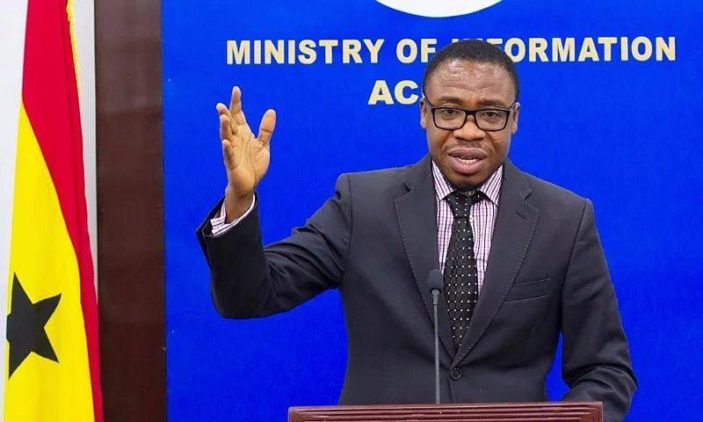
Audio By Carbonatix
The CEO of the National Health Insurance Authority, Dr Dacosta Aboagye, has revealed that the National Health Insurance Scheme (NHIS) is footing the dialysis bill of about 500 patients.
This follows the announcement of the commencement of a six-month free dialysis support programme for renal patients from June to December 2024.
Speaking on PM Express on JoyNews, he revealed that these patients are already registered and known to the hospitals providing their care.
“Once we had approval from parliament we set up a committee with the patient representatives and with all CEOs of teaching hospitals and it became clear where numbers were coming from. If you check from the hospitals, each of the North, South and Middle belts all have representations, in terms of how the selection went.”
“These are places they have been going to anyway. We have the numbers of patients that go there and they were provided by the CEOs of these hospitals. Because dialysis is a special disease, not every facility provides these machines, and the hospitals we selected were ones given to us by patients themselves,” Dr Aboagye said.
The NHIA CEO indicated that renal patients were never left out of the various meetings that helped structure the free dialysis programme.
He assured that all registered patients are accounted for and that any new cases brought to their attention are promptly addressed.
“We still have mid-year. We'll go to Parliament in mid-year. That's why data is very important. Once I have the data, we will see what we can do,” Dr Aboagye said on the potential for an increase in patient numbers.
He, however, emphasised that the NHIA will be observing and learning from the phase to ensure sustainability in the future.
Free dialysis programme explained
The support, as explained in a statement released by the National Health Insurance Authority (NHIA) dated June 1, noted that beneficiaries of the dialysis programme have been divided into two categories – Vulnerable groups [patients aged below 18 and above 60] and persons aged 18 to 59 years.
According to the Scheme, “patients under 18 and above 60 years will receive all eight free dialysis per sessions per month” with a cumulative cost estimated to be approximately GH₵2.3 million.
It added that “patients from the Komfo Anokye Teaching Hospital (KATH), Cape Coast Teaching Hospital (CCTH), Effia Nkwanta Regional Hospital (EFRH), Ho Teaching Hospital (HTH), and Tamale Teaching Hospital will receive two dialysis sessions per month at GH₵ 982.00 that is GH₵491 per session.”
“The cost of dialysis for this treatment category [persons aged 18 to 59 years] is projected to be GH₵144,354 per month and by the end of December 2024, the cumulative cost is estimated to be approximately GH₵ 1.01 million.”
Although renal patients from Korle Bu Teaching Hospital (KATH) will not be beneficiaries of the above, they will also receive a subsidy for two dialysis sessions per month at GH₵491.
This NHIA explained that this is due to a philanthropic gesture of GH₵380.00 being offered to renal patients.
Meanwhile, Dr Aboagye also revealed that the programme may be expanded to include other chronic diseases.
Regarding which other chronic diseases might be included, the NHIA CEO said that he cannot prematurely disclose any other details to prevent expectations.
“But what I know is that we are looking at it in totality. It's not a case that we are only going to look at kidney diseases. We are going to look at other diseases. Governments do have a comprehensive plan from where I sit to not only focus on kidney diseases, but other chronic diseases,” Dr Aboagye added.
Additionally, the NHIA is looking to roll out preventive medical care. This shift from a curative to a preventive approach, he stated, is essential for reducing the overall cost burden of healthcare.
“So the National Health Insurance Scheme, by next month, will be rolling out what we call the preventive healthcare as part of the claims budget. The reason being that we cannot have a disease National Health Insurance Scheme. So far, since its inception, we have been focusing on curative and services. How do we start from the basis by introducing something that will reduce these chronic diseases and the cost burden."
Latest Stories
-
Ebo Noah remanded pending psychiatric exam, to reappear on January 15
1 minute -
Our public university system is falling down
4 minutes -
Ho Central Mosque under heavy security, worshippers forced to pray outdoors
23 minutes -
An open letter to H.E. John Dramani Mahama: The audacity of the third shift
58 minutes -
A new era of healthcare dawns in Kintampo: Mary Queen of Love Medical Hospital opens its doors
2 hours -
NDC gov’t has demonstrated strong fiscal discipline – Abdulai Alhassan
2 hours -
Heavily armed Burkinabè soldiers arrested in Ghana
2 hours -
Tamale Chief commends IGP Special Operations Team for crime reduction efforts
2 hours -
None of NPP’s 5 flagbearer aspirants is credible – Abdulai Alhassan
3 hours -
Police arrest suspect for unlawful possession and attempted sale of firearm
4 hours -
3 arrested in connection with Tema robberies
4 hours -
Your mouth on weed is nothing to smile about
4 hours -
25% university fees hike, what was the plan all along? — Kristy Sakyi queries
6 hours -
Some OMCs reduce fuel prices; petrol going for GH¢10.86, diesel GH¢11.96
6 hours -
Trump says health is ‘perfect’ amid ageing concerns
7 hours

